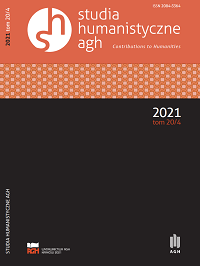ASISTED LIVING INSTITUTIONS AS THE BASIS OF ORDER AND A FORM OF BEHAVIOUR CONTROL FROM THE PERSPECTIVE OF ERVING GOFFMAN’S SYSTEMS THEORY
ASISTED LIVING INSTITUTIONS AS THE BASIS OF ORDER AND A FORM OF BEHAVIOUR CONTROL FROM THE PERSPECTIVE OF ERVING GOFFMAN’S SYSTEMS THEORY
Author(s): Teresa ZbyradSubject(s): Social Sciences
Published by: Wydawnictwa AGH
Keywords: assisted living institutions; nursing homes; total institutions; social control; social order; social needs; social care system; assistance; help
Summary/Abstract: Assisted living institutions such as nursing homes were established to answer a vital social need. Such services are needed by the elderly, disabled, and chronically ill. The social demand for these institutions is growing due to a deficit of care functions in families, among other factors. Undoubtedly, assisted living institutions play a vital role by providing help and assistance to less-independent individuals, and for many, they are a chance for survival or a dignified life because they offer food and shelter. However, nursing homes as assisted living institutions are not limited to satisfying the needs of their residents. There is something surprising and worrying about their functioning. To use R.K. Merton’s terminology, they operate according to latent functions that maintain social order and social control. To better understand the problem, it is worth looking at Erving Goffman’s popular theory of total institutions and Niklas Luhmann’s social systems theory.
Journal: Studia Humanistyczne AGH
- Issue Year: 20/2021
- Issue No: 4
- Page Range: 61-78
- Page Count: 18
- Language: English

